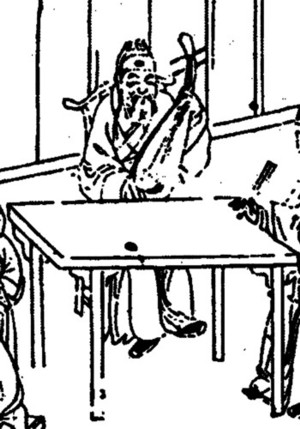History and Milieu (8)

Life of Liu Jingting (1592-1674),
’Father of Chinese Storytelling’
The celebrated storyteller Liu Jingting (1592—1674) from Taizhou in the vicinity of Yangzhou, began to practise his art in the cities of the lower Yangzi area: Yangzhou, Hangzhou, Suzhou, and Nanjing, and later he visited Beijing several times. His performances of historical tales such as Western Han Xi Han, Sui and Tang Sui Tang and Water Margin Shuihu, were highly appreciated wherever he went. His biography is fairly well recorded and there exist several eyewitness reports of his performances.
Liu Jingting was inheriting and transmitting in a creative way an oral tradition already well established at the time. He seems to have performed mainly on invitation in private homes, so-called 'salons' tanghui, a habit that became widespread not only among the rich, but also among the ordinary citizens on festive occasions.
The question of which dialect Liu Jingting spoke in his performances is not clear. It has been argued that since he was able to perform not only in the area around Yangzhou, but also in Beijing and in Suzhou, it is not unlikely that he actually spoke Yangzhou dialect, because this dialect belongs to the Northern dialects, affiliated to the normative 'officials' language' or Mandarin, which would be relatively understandable to people both from the North and the South. In his time storytelling (without singing) and storysinging were not clearly separate genres. Because of his eminence, he is generally considered 'the father of storytelling' in China, and honoured as the ancestor of the pinghua and tanci traditions of both Yangzhou, Suzhou and Hangzhou.
In the biographical sources on Liu Jingting, some other storytellers from Yangzhou are mentioned by name, but nothing further is recorded of them. However, one of his students, Ju Fuchen from Yangzhou, is known to have continued his master's tradition of stories from Sui Tang in the late 1680s and is given much praise in contemporary sources.
Next: Liu Jingting in performance